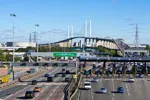The Australian government has already announced it will abolish the 100% duty discount on the fuel by 2008, and bring it in line with petrol and diesel.
The move is partly motivated because the government thinks LPG may no longer have an environmental benefit over other fuels by that date. It has angered the Australian fleet industry which has invested heavily in the fuel.
The Australian Fleet Managers' Association (AFMA) claims the move will undo much good work in green fleets, will destroy residual values on alternatively-fuelled vehicles and will cost the industry millions of dollars.
AFMA members are responsible for around 800,000 fleet vehicles in Australia. Marja Thompson, its executive director, said: 'The Government, after years of encouraging fleets to invest in alternatively-fuelled vehicles which reduce air pollution, is now set to abandon individuals and organisations who heeded the call and made a commitment.
Fuels such as LPG already have an Australia-wide distribution network and there are more than 500,000 vehicles using LPG. The Government seems to have decided it might not be so keen on LPG and has now turned its back on those it encouraged to make the change.
'The Government's decision to apply excise to alternative fuels will drastically increase fleet operating costs while also having a devastating effect on resale values of alternate fuel vehicles such as the LPG-dedicated vehicle.'
Following the recommendations of the Trebeck fuel taxation report in March 2001, the Federal government decided to pursue a course of budget neutrality on all petroleum products. The reasoning behind the Government's move is to promote efficiency in revenue raising from fuel excise and to have a taxation system which minimises the impact on consumer choices.
The government is trying to soften the blow by bringing duty into line with other fuels in five annual instalments and claims it is an opportunity for currently untaxed fuels to establish their commercial credentials in the marketplace.
LPG accounts for around 8% of road fuel used in Australia annually and is around 38 cents per litre cheaper than petrol or diesel.
The Australian LPG industry has committed huge resources to the transport network, with a A$2.1 billion investment. And a further A$1.1 billion has been spent operating and converting vehicles to LPG by fleets and consumers.
However, supporters of LPG argue that to bring the fuel into line with petrol and diesel will result in interest tailing off. It is less efficient in term of miles per gallon, so in real terms would become more expensive. It will also mean that the government loses the trust of the fleet industry.
Thompson added: 'This change in policy will not only affect the millions of dollars invested by industry and fleets so far, but will ensure that any future calls from Government to adopt new approaches or technology will be met with scepticism and distrust.'
The crisis comes as the UK Government reviews its treatment of LPG. An announcement is expected in the autumn.

















Login to comment
Comments
No comments have been made yet.